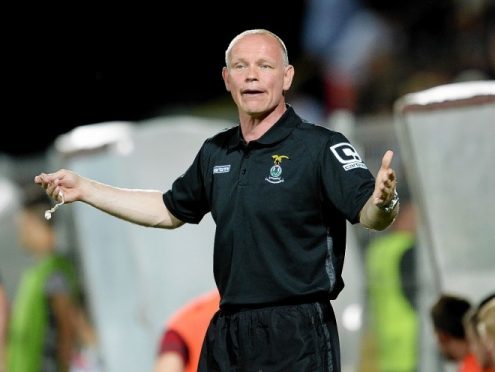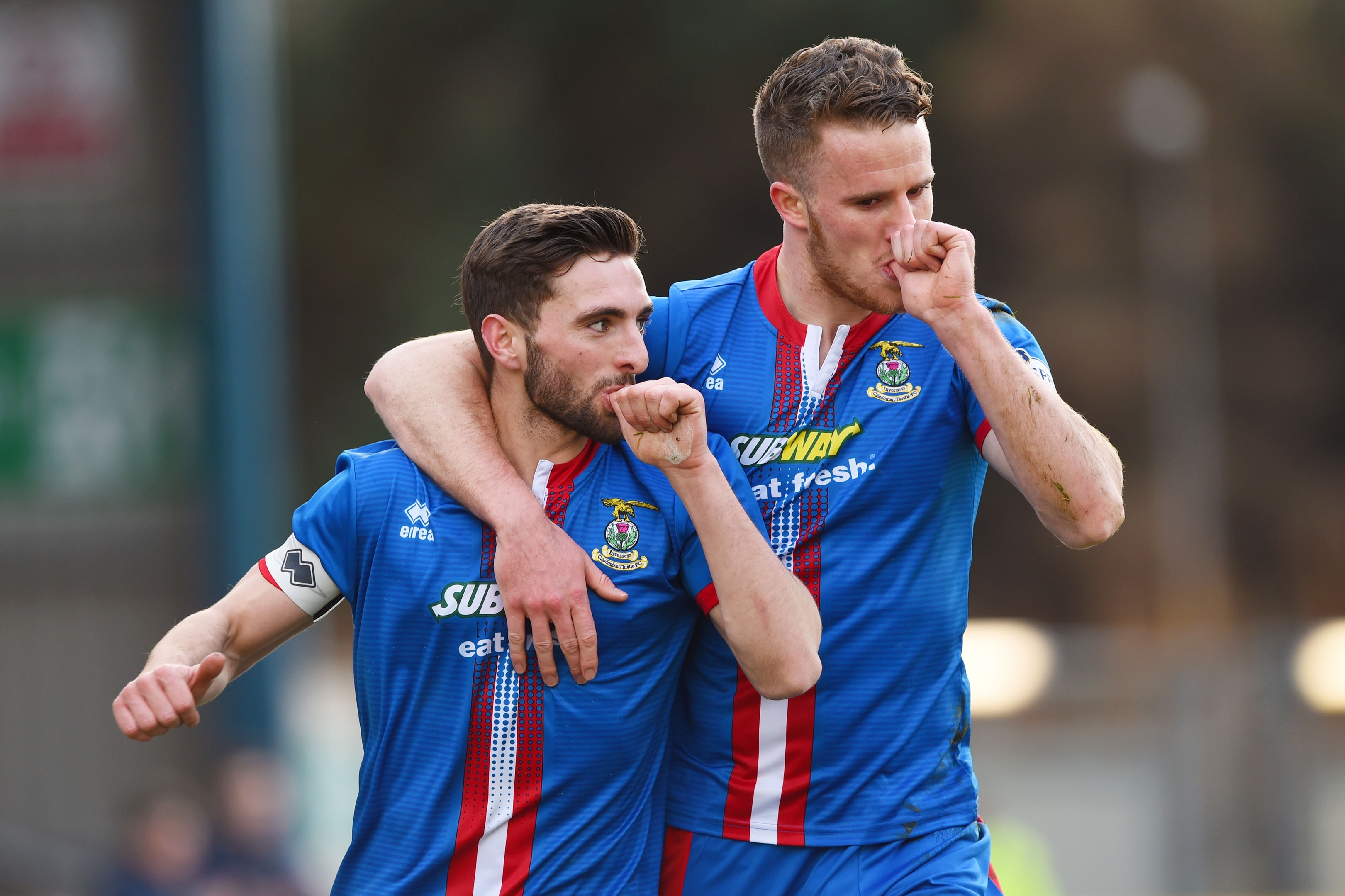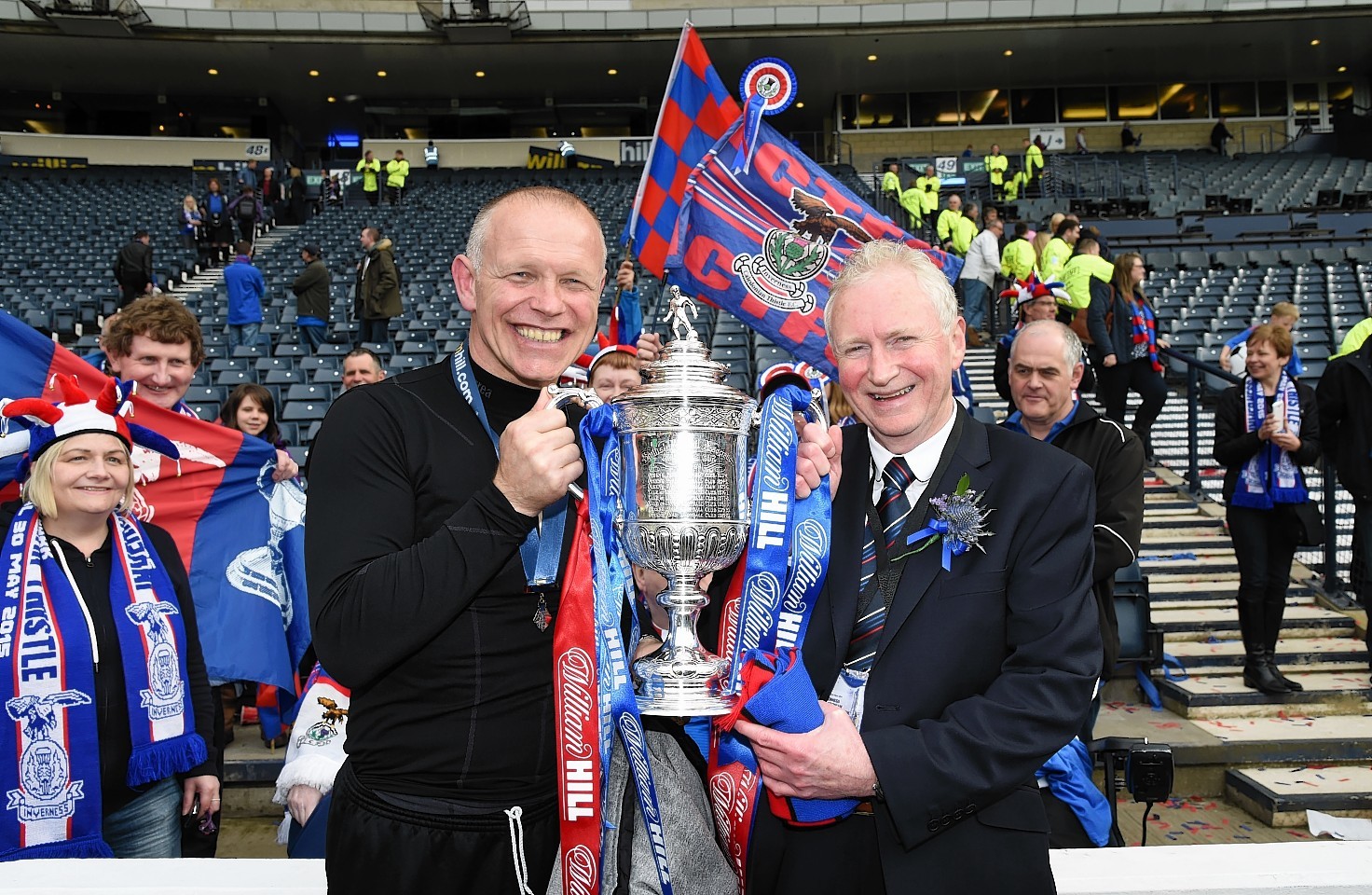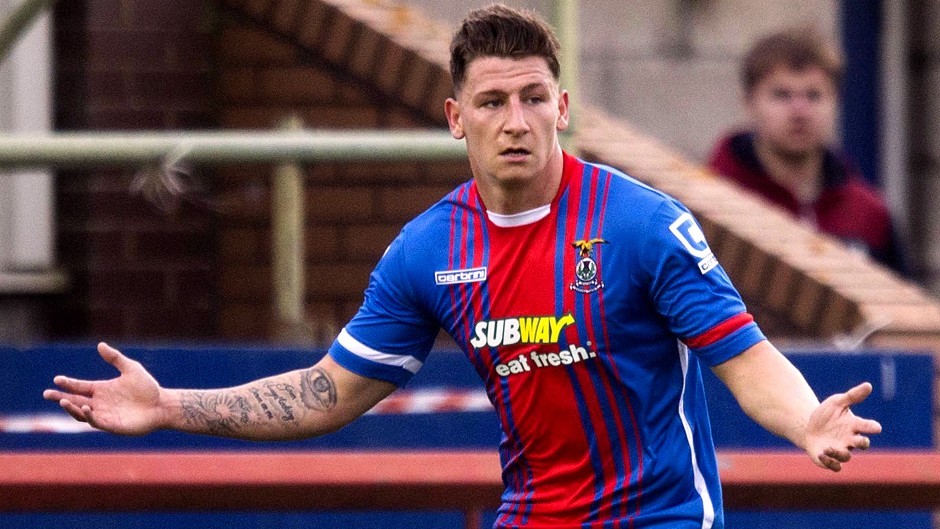Whether John Hughes’ time at Caley Thistle is remembered for right or wrong reasons, one sure thing is that the Inverness supporters will never forget him.
Several weeks of dispute with chairman Kenny Cameron over next season’s playing budget finally came to a head on Friday when Hughes agreed a severance package that brought an end to his rollercoaster stint in the Highlands.
The pair offered two very different versions of the same hard-luck story about the club’s failure to finish in the top six of the Premiership for the first time in four years. It ultimately brought their relationship to rock-bottom.
Hughes became increasingly irked by the continued loss of players to other clubs, with Billy Mckay, Graeme Shinnie, Marley Watkins and Ryan Christie leaving under his watch.
He felt he was not given the financial backing required to replace them with an equivalent standard. But Cameron hit back, claiming last season’s player budget was the biggest afforded to any manager in the club’s 22-year history.
It was an exchange that intensified and, ultimately, brought dialogue between the pair to a screeching halt.
At any club, the relationship between manager and chairman is the most crucial of all, meaning something had to give.
The unsavoury manner of Hughes’ departure is one that would normally be expected of a manager who has never really got going at a club. Certainly not one who oversaw the most successful season in the club’s history as little as 12 months ago.
It is a messy parting of ways that is hardly befitting of a tenure that brought Caley Jags their first major silverware, along with a club-record third-place finish in the Premiership, with the club also embarking on a maiden European adventure.
It is hard to believe those achievements all happened within the last year, so where did it all go so spectacularly wrong?
No one pretended following up such a momentous campaign was going to be easy but Inverness really were the victims of their own success.
With just 47 days between their cup triumph against Falkirk at Hampden on May 30, and the first leg of their Europa League qualifier against Romanian side FC Astra on July 16, there was precious little time to prepare for the season ahead.
The consequences of the shortened pre-season were palpable throughout the campaign, with injuries mounting from an early stage, forcing the treatment room into overdrive.
Key players, central to the previous season’s success, such as Gary Warren, Josh Meekings and Aaron Doran were all sidelined for long spells, while new signing Jordan Roberts was unable to hit the ground running.
Further disruption came in October when Cameron was forced to turn down an approach by Dundee United to speak to Hughes with a view to him filling their vacant post, with the Tangerines eventually opting for Mixu Paatelainen.
That decision was soon followed by Hughes and assistant Brian Rice signing new contracts at Caledonian Stadium until 2018, which ought to have unified Caley Jags, and given them the impetus to plan for a prosperous future under their man.
Unfortunately, over time it has proven to do the exact opposite.
Hughes retrospectively admitted he was disappointed his board did not allow him to speak to United, having clearly seen appeal in the job despite the Tannadice side sitting bottom of the Premiership.
His rhetoric increasingly put him across as a man frustrated by his situation with Caley Jags, with budget issues, by his own volition, very often the focus of his press briefings.
The onslaught of injuries prompted more additions in January, with the board sanctioning a “rainy day” fund that took the quota of first-team players way above the normal 18, and up to 25.
This supported their claim they had backed the manager sufficiently but when Cameron expressed his disappointment this was not met by a top-six finish, it was clear he did not feel Hughes had shown enough nouse in the transfer market to vindicate his demands for more money.
The validity of the injury problems as an excuse for Inverness’ difficult campaign was enhanced by a fine end of season run of four wins from five post-split matches, after the majority of the squad had returned. By that stage it was clearly too late, however, with this fractious relationship between manager and chairman beyond salvaging.



